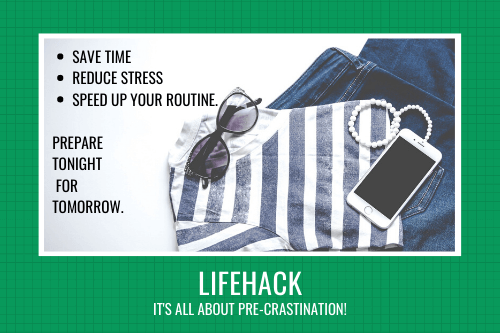
YouTube / iTunes / Spotify / Radio Public / Pocket Casts / Google Podcasts / Breaker / Overcast
Listen to ArtisanEnglish.jp posts & lesson intros here.
Word of the Day: Lifehack
Some students asked about the meaning of lifehack after it came up in one of the articles for the Adaptability Quotient lesson.
Lifehacks are quite popular now because of the busy, time-constrained lifestyles everyone seems to live.
Any little trick, tool, or strategy you can adopt to better manage your time or speed up daily activities is a lifehack.
For example, many North Americans prefer to have a shower in the morning instead of before going to bed.
Japanese, on the other hand, enjoy taking a leisurely bath at the end of a hectic day.
A bath, a beer, and then bed are great ways to ensure a good night’s sleep.
A bonus is that you have more time to prepare in the morning or sleep a few more precious minutes.
If North Americans showered at night, that would be a lifehack for them.
Since I mentioned getting ready in the morning, I have a little lifehack to speed up that process as well.
Some people like to prepare tomorrow’s outfit the night before.
They lay out the clothing they will wear the next day before going to bed.
That way, they have fewer decisions to make and less time wasted in the morning.
It may seem like a small thing, but that’s what a lifehack is.
It’s a small, seemingly insignificant but ingenious way to speed up your daily routine, reduce wasted time and make everyday activities easier and smoother.
Yes, it’s not a new concept.
Hundreds of years ago, people talked about killing two birds with one stone.
Lifehacks are simply a new twist on an old challenge – how to make life easier.
Flesch-Kincaid Readability Test
This post is understandable by someone with at least an 8th-grade education (age 13 – 14).
On the Flesch-Kincaid reading-ease test, this post scores 65.
The higher the score on a scale of 0 – 100, the easier the passage is to read.

